Diversity and Genders
This theme highlights exclusionary processes at play at World Heritage sites, as well as to highlight new and innovative approaches to address them. This theme is essential at the times of the Black Lives Matter Movement, hyper-diversified societies and the increased injustices created along (intersections of) race, gender and class by Covid-19. The objectives of this theme are:
To reveal how structural inequalities and unequal power relations, particularly between the North and the Global South, reflected in nations, structure the World Heritage system and marginalised communities, groups and individuals.
To explore mechanisms of domination, discrimination, exclusion and erasure of women and minorities through heritage policies and practices (folklorization, forgetting of specific narratives).
To highlight how marginalised communities, groups and individuals, as well as multiple and shifting forms of identities can be better represented in narratives on World Heritage.
To (re)consider processes of heritage valuation and benefits that have led to the marginalisation of forms of heritages and minority stakeholders.
To highlight key and contemporary issues affecting minority groups, communities and individuals (including women) at World Heritage sites, particularly relating to the Sustainable Development Goals, and innovative approaches to address them.

Team ‘Diversities and Genders’ have welcomed unheard voices in the global heritage debate. They were very successful in organising 4 Webinars, a 2-day conference and a call for participations that invited people to tell ‘counter-stories’.
Writers, researchers, curators, artists, and activists were asked to challenge the existing discourses by presenting different narratives. Entries for this call for action are presented here.
Recordings of the events
We interrogate the ways in which colonial legacies of gender and sexuality are often brought about in cultural heritage institutions, spaces and dialogues. In light of this, the webinar will raise questions around what strategies may be used to disrupt heteronormativity when we engage with cultural heritage.
PROGRAMME
In this webinar (held on March 10, 08:00–09:30 UTC) we interrogate the ways in which colonial legacies of gender and sexuality are often brought about in cultural heritage institutions, spaces and dialogues. In light of this, the webinar will raise questions around what strategies may be used to disrupt heteronormativity when we engage with cultural heritage.
SPEAKERS
Nicole Moolhuijsen (Italy) is researcher at Venice Ca’ Foscari University (Department of Management); Italy. She also works freelance on accessibility, interpretation and audience engagement with cultural institutions. In 2019 she was awarded a grant to undertake research at IHLIA LGBT Heritage in Amsterdam (NL) and currently works on heritage activism and gender, sexual and relationship diversities. She is perspective PhD student at the University of Leicester (Research Centre for Museums and Galleries) and Board Member of ICFA (ICOM International Committee for Fine Art Museums and Collections). Twitter: @nicolemool
Dr. Laura Rodriguez Castro (Australia) is a researcher, writer and educator interested in decolonial, anti-racist and feminist approaches to difficult memories and heritage. She will be starting a postdoctoral research fellowship at the Alfred Deakin Institute of Citizenship and Globalisation in March 2021. Laura’s book with Palgrave Decolonial Feminisms, Power and Place: Sentipensando with Rural Women in Colombia explores how rural women enact and imagine decolonial feminist worlds. Twitter: @laurarc91
Deepak Srinivasan (India) is a Bangalore-based artist, media practitioner and design educator with 15 years of practice in performing arts, radio, film, community media, design and pedagogy that converge as trans-disciplinary practice. Deepak’s work in community media and social design has spanned many youth groups, special children’s groups (school drop-outs, children in State rimand and juvenile justice homes) and special communities such as street-based sex-workers. His interests include gender, ecology, creative education design, urban space design, knowledge system practices; with a focus on modernity and its intersections with historic process, oral histories and collective memory. Deepak’s formal work experience span media content design with urban arts and public sphere centric institutions, social sector collaborators, institutional and independent academic curriculum design and delivery and diverse client based design consultancies.
This webinar will explore resistance and activism around historic sites and forms of intangible heritage, as well as how these movements could be recognised and supported at different local, national, and international levels.
This webinar (held on March 15, 15:00-18:30 UTC) focuses on the everyday ways that people contest representations, practices and erasures of heritage. It also considers how cultural heritage can provide space for marginalised groups to resist certain social/political/economic structures. What are the strategies of communities who challenge dominant systems that exploit, appropriate or destroy cultural and natural heritage? How do individuals and groups struggle against problematic or discriminatory heritage practices? This webinar will explore resistance and activism around historic sites and forms of intangible heritage, as well as how these movements could be recognised and supported at different local, national, and international levels.
SPEAKERS
Sawsan Asfari, Founder of the Galilee Foundation. Sawsan Asfari is also a co-founder and Trustee of the Asfari Foundation, which aims to help young people make a valuable contribution to society by empowering them through education, research and the power of free thinking. In addition to this, she is Board Member of the U.S Middle East Project, advisory board member of Challenge To Change and member of the Palestinian development organisation, the Welfare Association. She is also the founder of Cocoon Films.
Dr. Chiara De Cesari is Associate Professor in European Studies and Cultural Studies at the University of Amsterdam. Her wide-ranging research explores how forms of memory, heritage, art, and cultural politics are shifting under conditions of contemporary globalization and state transformation. One strand of work explores how artists and activists are reclaiming and reinventing cultural institutions. Chiara is currently leading a major NWO-funded project on this theme, named “Imagining Institutions Otherwise.” Another concerns the transnational politics of memory and cultural heritage, above all in the West Bank. Her monograph, Heritage and the Cultural Struggle for Palestine (Stanford UP, 2019), argues that Palestinian civil society has enrolled museums and urban regeneration initiatives to assert its distinct cultural heritage amid the enduring Israeli occupation. Still another focuses on colonial legacies in contemporary Europe. Chiara is currently co-writing another monograph, provisionally titled Curating the Colonial, which explores how museums are reframing colonial histories in response to postcolonial critiques. Across these interests, Chiara has published many articles in journals such as American Anthropologist, Current Anthropology, and Memory Studies, and co-edited two key volumes in memory studies (European Memory in Populism, Routledge, 2019; Transnational Memory, de Gruyter, 2014) and a special issue of the International Journal of Heritage Studies on urban heritage and gentrification (2018). Committed to international and interdisciplinary collaboration, she has been involved in several major international research projects. Currently, she is part of the HERA’s “en/counter/points” project and the Trans-Atlantic Platform for Social Innovation’s “Worlding Public Cultures” network.
Dr. Sarah Mallet (UK) is a post-doctoral researcher on the Pitt Rivers Museum’s Action for Restitution to Africa project. Her previous role at the PRM involved researching the visual and material culture of the Calais ‘Jungle’, and she was one of the co-curators of the major temporary exhibition ‘Lande: The Calais ‘Jungle’ and beyond’ on display at the Pitt Rivers Museum. That project developed new approaches to contemporary collecting in impermanent spaces and used the principles of archaeological methodology to understand and record the lives of undocumented people in the present. She has a multi-disciplinary background, including medieval history and scientific archaeology, and her doctoral research–as part of the English Landscape and Identity Project–was an investigation of legacy isotope data from human and faunal bones from English sites between the Iron Age and the Early Medieval period. Her current research has focused on borders and migrations, as well as the history of camps in Northern France in relation to contemporary events. She is the co-author with Dan Hicks of the book Lande: The Calais ‘Jungle’ and beyond published by Bristol University Press in May 2019. Twitter: @SarahMMallet
Nicola Bird was project manager for the multi-award winning Multaka Oxford Programme at Oxford University’s History of Science and Pitt Rivers Museums. Nicola has over 20 years’ experience of community-led and people-led practice in the heritage, lifelong and community learning sectors. Multaka Oxford is an inclusive volunteering programme that values equity through identifying (and working) towards the aims of the volunteers, community partners and the museum, equally. Meaning ‘meeting point’ in Arabic, Multaka Oxford created a platform for intercultural dialogue and understanding and demonstrated clear approaches that diversified perspectives, voices and strategies to collection interpretation and engagement. Nicola is a community engagement officer at Oxford University Gardens, Libraries and Museum, and a freelance consultant in community and inclusive practice within the museum and heritage sector.
Dr. Biung Ismahasan (b.1984) is a curator, artist and researcher from the Bunun, Atayal and Kanakanavu Nations, three of Taiwan’s sixteen Indigenous Nations. He received a PhD in Curating from the Centre for Curatorial Studies at the University of Essex, UK, in January 2021, with a thesis on ‘Indigenous Relational Space and Performance: Curating Together towards Sovereignty in Taiwan and Beyond.’ His research involves issues of Indigenous curatorial practice and decolonial aesthetics, focusing on the curation of Taiwanese Indigenous contemporary art, building on the themes of the articulation of ‘performative Indigeneity’, Indigenous creative sovereignty, ethics and epistemologies of artistic collaboration and strategies, as well as the historiography of Indigenous curation and exhibition design. He is an alumnus of the MA in Cultural Policy, Relations & Diplomacy from the Institute for Creative and Cultural Entrepreneurship at Goldsmiths, University of London (2014). His most notable curatorial projects include: Dispossessions: An Indigenous Performative Encounter 2014–2019 (an international performance art exchange of Indigenous artists from Taiwan), Ngahi’ Routes: When Depth Become Experiment (Taoyuan City Indigenous Cultural Centre, 2019); the Rukai Nation installation artist Eleng Luluan’s Between Dreams at Àbadakone | Continuous Fire | Feu continuel (National Gallery of Canada, 2019-2020); Resurgence and Solidarity: Indigenous Taiwanese Women’s Art (Taiwan Indigenous Peoples Cultural Park, 2021 collaborated with British Council and Border Crossings’ ORIGINS Festival of First Nations in London). He was a curatorial assistant of Let the River Flow: The Sovereign Will and the Making of a New Worldliness (Office for Contemporary Art Norway in Oslo, 2018). biungismahasan.weebly.com
Benjamina Efua Dadzie is a writer and researcher, with an interest in West African cultures, especially Akan and Yoruba. She has a BA (Hons) in Archaeology from the University of Manchester, and an MA in the Arts of Africa, Oceania and the Americas from the University of East Anglia. Her current research deals with the impact of missionary presence in 19th century Abeokuta (southwestern Nigeria), focusing on changes in identity and material culture. She is a Collections Assistant in Anthropology at the University of Cambridge’s Museum of Archaeology and Anthropology; the Digital Editor of the award-winning open-access publication 100 Histories of 100 Worlds in 1 Object; and a Researcher at The Nana Project, where she leads content development with a focus on pre- and colonial Ghana. Twitter: @wawaaba_
Dr. Paul Edward Montgomery Ramírez, Mangue-Chorotega archaeologist, is a decolonial heritage specialist and public archaeologist. He is a member of the Indigenous Council of the World Archaeological Congress (WAC). Paul Edward works on issues of presenting, re-presenting, and decolonizing heritage narratives in media, tourism, museums, and education. He is also focused on delivering decolonial options to heritage practice, sustainable futures in tourism, food sovereignty, and Indigenous rights. Paul Edward is a consultant, lecturer, and is the founder of a small organization for cultural heritage and Indigenous rights called Hilo Azul. He holds a PhD from the Department of Archaeology at the University of York. Twitter: @Archaeofiend
Professor Alessandro Petti, Architecture and Social Justice at the Royal Institute of Art in Stockholm. Co-founder of Decolonizing Architecture Art Research (DAAR).
THEMES
This webinar will explore resistance and activism around historic sites and forms of intangible heritage, as well as how these movements could be recognised and supported at different local, national, and international levels.
This webinar (held on March 15, 15:00-18:30 UTC) focuses on the everyday ways that people contest representations, practices and erasures of heritage. It also considers how cultural heritage can provide space for marginalised groups to resist certain social/political/economic structures. What are the strategies of communities who challenge dominant systems that exploit, appropriate or destroy cultural and natural heritage? How do individuals and groups struggle against problematic or discriminatory heritage practices? This webinar will explore resistance and activism around historic sites and forms of intangible heritage, as well as how these movements could be recognised and supported at different local, national, and international levels.
SPEAKERS
Sawsan Asfari, Founder of the Galilee Foundation. Sawsan Asfari is also a co-founder and Trustee of the Asfari Foundation, which aims to help young people make a valuable contribution to society by empowering them through education, research and the power of free thinking. In addition to this, she is Board Member of the U.S Middle East Project, advisory board member of Challenge To Change and member of the Palestinian development organisation, the Welfare Association. She is also the founder of Cocoon Films.
Dr. Chiara De Cesari is Associate Professor in European Studies and Cultural Studies at the University of Amsterdam. Her wide-ranging research explores how forms of memory, heritage, art, and cultural politics are shifting under conditions of contemporary globalization and state transformation. One strand of work explores how artists and activists are reclaiming and reinventing cultural institutions. Chiara is currently leading a major NWO-funded project on this theme, named “Imagining Institutions Otherwise.” Another concerns the transnational politics of memory and cultural heritage, above all in the West Bank. Her monograph, Heritage and the Cultural Struggle for Palestine (Stanford UP, 2019), argues that Palestinian civil society has enrolled museums and urban regeneration initiatives to assert its distinct cultural heritage amid the enduring Israeli occupation. Still another focuses on colonial legacies in contemporary Europe. Chiara is currently co-writing another monograph, provisionally titled Curating the Colonial, which explores how museums are reframing colonial histories in response to postcolonial critiques. Across these interests, Chiara has published many articles in journals such as American Anthropologist, Current Anthropology, and Memory Studies, and co-edited two key volumes in memory studies (European Memory in Populism, Routledge, 2019; Transnational Memory, de Gruyter, 2014) and a special issue of the International Journal of Heritage Studies on urban heritage and gentrification (2018). Committed to international and interdisciplinary collaboration, she has been involved in several major international research projects. Currently, she is part of the HERA’s “en/counter/points” project and the Trans-Atlantic Platform for Social Innovation’s “Worlding Public Cultures” network.
Dr. Sarah Mallet (UK) is a post-doctoral researcher on the Pitt Rivers Museum’s Action for Restitution to Africa project. Her previous role at the PRM involved researching the visual and material culture of the Calais ‘Jungle’, and she was one of the co-curators of the major temporary exhibition ‘Lande: The Calais ‘Jungle’ and beyond’ on display at the Pitt Rivers Museum. That project developed new approaches to contemporary collecting in impermanent spaces and used the principles of archaeological methodology to understand and record the lives of undocumented people in the present. She has a multi-disciplinary background, including medieval history and scientific archaeology, and her doctoral research–as part of the English Landscape and Identity Project–was an investigation of legacy isotope data from human and faunal bones from English sites between the Iron Age and the Early Medieval period. Her current research has focused on borders and migrations, as well as the history of camps in Northern France in relation to contemporary events. She is the co-author with Dan Hicks of the book Lande: The Calais ‘Jungle’ and beyond published by Bristol University Press in May 2019. Twitter: @SarahMMallet
Nicola Bird was project manager for the multi-award winning Multaka Oxford Programme at Oxford University’s History of Science and Pitt Rivers Museums. Nicola has over 20 years’ experience of community-led and people-led practice in the heritage, lifelong and community learning sectors. Multaka Oxford is an inclusive volunteering programme that values equity through identifying (and working) towards the aims of the volunteers, community partners and the museum, equally. Meaning ‘meeting point’ in Arabic, Multaka Oxford created a platform for intercultural dialogue and understanding and demonstrated clear approaches that diversified perspectives, voices and strategies to collection interpretation and engagement. Nicola is a community engagement officer at Oxford University Gardens, Libraries and Museum, and a freelance consultant in community and inclusive practice within the museum and heritage sector.
Dr. Biung Ismahasan (b.1984) is a curator, artist and researcher from the Bunun, Atayal and Kanakanavu Nations, three of Taiwan’s sixteen Indigenous Nations. He received a PhD in Curating from the Centre for Curatorial Studies at the University of Essex, UK, in January 2021, with a thesis on ‘Indigenous Relational Space and Performance: Curating Together towards Sovereignty in Taiwan and Beyond.’ His research involves issues of Indigenous curatorial practice and decolonial aesthetics, focusing on the curation of Taiwanese Indigenous contemporary art, building on the themes of the articulation of ‘performative Indigeneity’, Indigenous creative sovereignty, ethics and epistemologies of artistic collaboration and strategies, as well as the historiography of Indigenous curation and exhibition design. He is an alumnus of the MA in Cultural Policy, Relations & Diplomacy from the Institute for Creative and Cultural Entrepreneurship at Goldsmiths, University of London (2014). His most notable curatorial projects include: Dispossessions: An Indigenous Performative Encounter 2014–2019 (an international performance art exchange of Indigenous artists from Taiwan), Ngahi’ Routes: When Depth Become Experiment (Taoyuan City Indigenous Cultural Centre, 2019); the Rukai Nation installation artist Eleng Luluan’s Between Dreams at Àbadakone | Continuous Fire | Feu continuel (National Gallery of Canada, 2019-2020); Resurgence and Solidarity: Indigenous Taiwanese Women’s Art (Taiwan Indigenous Peoples Cultural Park, 2021 collaborated with British Council and Border Crossings’ ORIGINS Festival of First Nations in London). He was a curatorial assistant of Let the River Flow: The Sovereign Will and the Making of a New Worldliness (Office for Contemporary Art Norway in Oslo, 2018). biungismahasan.weebly.com
Benjamina Efua Dadzie is a writer and researcher, with an interest in West African cultures, especially Akan and Yoruba. She has a BA (Hons) in Archaeology from the University of Manchester, and an MA in the Arts of Africa, Oceania and the Americas from the University of East Anglia. Her current research deals with the impact of missionary presence in 19th century Abeokuta (southwestern Nigeria), focusing on changes in identity and material culture. She is a Collections Assistant in Anthropology at the University of Cambridge’s Museum of Archaeology and Anthropology; the Digital Editor of the award-winning open-access publication 100 Histories of 100 Worlds in 1 Object; and a Researcher at The Nana Project, where she leads content development with a focus on pre- and colonial Ghana. Twitter: @wawaaba_
Dr. Paul Edward Montgomery Ramírez, Mangue-Chorotega archaeologist, is a decolonial heritage specialist and public archaeologist. He is a member of the Indigenous Council of the World Archaeological Congress (WAC). Paul Edward works on issues of presenting, re-presenting, and decolonizing heritage narratives in media, tourism, museums, and education. He is also focused on delivering decolonial options to heritage practice, sustainable futures in tourism, food sovereignty, and Indigenous rights. Paul Edward is a consultant, lecturer, and is the founder of a small organization for cultural heritage and Indigenous rights called Hilo Azul. He holds a PhD from the Department of Archaeology at the University of York. Twitter: @Archaeofiend
Prof. Alessandro Petti, Architecture and Social Justice at the Royal Institute of Art in Stockholm. Co-founder of Decolonizing Architecture Art Research (DAAR).
A conversation about institutional inequalities and unequal power relations.
PROGRAMME
In this webinar (held on March 23, 15:00–17:00 UTC) we have a conversation about institutional inequalities and unequal power relations. UNESCO and the World Heritage Committee create the structures in which World Heritage sites have to operate and they thus ask for local (policy) frameworks to fit within these, or resist them. These frameworks in themselves are exclusive, and frame heritage in particular ways. The World Heritage List and the World Heritage Committee are also an international platform on which national and local politics are being staged. In this webinar we will explore how diversity (intersectional) is influenced by these unequal power relations.
SPEAKERS
Dr. Višnja Kisić is a researcher, educator and practitioner in heritage and museum field, whose work focuses on relations between heritage, contemporary politics, societal issues and identities. She is Assistant Professor at the Faculty of Sport and Tourism, and at UNESCO Chair MA in Cultural Policy and Management Belgrade, and visiting professor at universities in Beijing, Lyon and Casablanca. She has worked in several museums, has acted as Secretary General of Europa Nostra in Serbia and has led projects, trainings, lectures and research in over 20 countries in Europe, Africa, Asia and South America.
Dr. Afolasade Adewunmi, an alumna of the University of Ibadan, holds a Ph.D in Cultural Property Law in 2015 on the topic “Return and Restitution of Cultural Property in African States under the 1970 UNESCO and 1995 UNIDROIT Conventions.” She is the pioneer Ph.D holder in Cultural Property Law in Nigeria. She is a Senior Lecturer in the Department of Jurisprudence and International Law, Faculty of Law, University of Ibadan where she teaches Cultural Property Law, Nigerian Legal System and Private International Law. She has benefitted from several international scholarships on heritage matters. She was a UNIDROIT Scholar(2014). She is a member of the Nigerian Bar Association (NBA), the Nigerian Association of Law Teachers (NALT), the Association of Nigeria Archivists, the Commonwealth Legal Education Association, the Global Cultural Emergency Response Group, ICOMOS and ICLAFI (Expert Member). She was trained as a cultural heritage First Aider by Prince Claus Fonds, ICCROM and Smithsonian Institute in 2016 and as a Heritage Steward in Challenging Circumstances in 2019. She served as an International heritage expert to Malawi at the National workshop on First Aid to Cultural Heritage in Times of Crisis between 6 to 10 February 2017. Linkedin; Google Scholar; Academia.
Dr. Ndukuyakhe Ndlovu is manager of archaeology at the South African National Parks. He was most recently a Senior Lecturer (Archaeology), Department of Anthropology and Archaeology, University of Pretoria and the Editor-in-Chief of the South African Archaeological Bulletin. Previously, Ndukuyakhe served as a Council member for the Association of Southern African professional Archaeologists (ASAPA) and the South African Archaeological Society (SAAS) and is currently the Secretary for the World Archaeological Congress (WAC). His research focuses on southern African rock art, heritage resources management, and transformation in archaeology. Researchgate; Academia.
Dr. Dipuo Winnie Kgotleng (University of Johannesburg, South Africa) holds an MSc and PhD in Palaeo-Archaeology from the University of the Witwatersrand, Johannesburg, South Africa. She is currently the Director of the Palaeo-Research Institute at the University of Johannesburg. She is a fossil primate specialist who conducts research in the Cradle of Humankind and is a specialist of Cultural Resources Management of Palaeo-related heritage. Dipuo has held various positions in public administration of science since 2006, at the Taung Skull World Heritage Site, Vredefort Dome World Heritage Site, the Cradle of Humankind World Heritage Site as well as the Department of Science and Technology, Government of South Africa. Her most notable contribution to palaeoscience administration is her project manager role in the development of the National Palaeo-Research Strategy. She is also a champion of transformation of the Palaeo-sciences and was one of the first members of the Association for Southern African Professional Archaeology who called for a formalization of transformation of Archaeology which translated into the Transformation Charter of Archaeology. In her current role as the Director of the Palaeo-Research Institute, Dr. Kgotleng is using her platform to train and mentor young African professionals in the sector with the ultimate aim of contributing towards material transformation of palaeo profession. Twitter: @onthatilesmom
CONFERENCE ON DIVERSITIES AND GENDERS
The conference will address how World Heritage is being contextualized in relation to Gender & Diversities and the SDGs. How can research, frameworks and working tools either theoretically or on site address marginalisation and valuation within this sector? The aim of the conference is to address various mechanisms that exclude diversity at World Heritage sites. They include: structural inequalities within World Heritage discourses that marginalise communities; domination of the majority culture over heritage policies; multiple and shifting forms of identities that can better represent official narratives on World Heritage; actions taken by stakeholders that either collectively or deliberately marginalise communities. The conference will also explore innovative ways to address issues affecting gender and diversities at World Heritage particularly relating to SDGs.
SESSION I – MONUMENTS OF OPPRESSION
This session aims to discuss how monuments reproduce structural inequalities located at the intersections of race, gender, and class to become monuments of oppression. Monuments around the world are used to support official historical narratives that often exclude the individuals and communities who interact with them. Statues, buildings, and natural monuments are given official narratives which define and commemorate an event, person, or group; these are usually imposed from a place of power. This can create a situation where those that hold power in societies impose their discourse, worldviews, and experiences onto places and spaces, an act which denies the histories, heritages, and experiences of marginalised individuals and communities.
To aid this discussion, this session examines monuments that have been elevated to the World Heritage stage alongside the oppressive narratives that support them and vice versa. We will explore mechanisms of domination, discrimination, exclusion, and erasure to highlight contemporary issues within World Heritage and its links with oppression. We will also (re)consider processes and practices that can transform monuments of oppression into inclusive spaces and places for those they have previously dominated.
Session Moderator:
Alize Utteryn (French Guiana, United Nations Journalist)
Opening Remarks by University of Nova Gorica
Opening Ancestoral Prayers by Ade Williams
SPEAKERS
Adaku Ezeudo (Diversity, Equity and Inclusion Consultant, Ireland)
Shahid Vawda (Archie Mafeje Chair, Critical and Decolonial Humanities; Professor, University of Cape Town, South Africa)
Elena Settimini (Heritage and Museum Consultant, Italy)
Speaker from Common Ground (Common Ground is a movement that sets out to examine Oxford’s colonial past in the context of its present-day inequalities)
Speaker from Rhodes Must Fall (A movement to decolonise the space, curriculum and the institutional memory at, and to fight intersectional oppression within Oxford)
Virtual Tour by Uncomfortable Oxford, an academic-led social enterprise in the city of Oxford, which runs lectures, digital events, and creates resources highlighting stories of inequality, imperialism, race, class, and gender discrimination, as well as the debates surrounding historical memory. Founded in 2018, the organisation’s goal is to raise awareness and generate uncomfortable yet meaningful discussions about these issues in the public sphere, using in particular the built environment to bring up contested histories and their present legacies.
Civil Society Theme Showcase
This session looks at how marginalised groups are affected by the constant reminder of what historical monuments represent. The power of how their struggles came about, glorified in a monument.
CONFERENCE ON DIVERSITIES AND GENDERS
The conference will address how World Heritage is being contextualized in relation to Gender & Diversities and the SDGs. How can research, frameworks and working tools either theoretically or on site address marginalisation and valuation within this sector? The aim of the conference is to address various mechanisms that exclude diversity at World Heritage sites. They include: structural inequalities within World Heritage discourses that marginalise communities; domination of the majority culture over heritage policies; multiple and shifting forms of identities that can better represent official narratives on World Heritage; actions taken by stakeholders that either collectively or deliberately marginalise communities. The conference will also explore innovative ways to address issues affecting gender and diversities at World Heritage particularly relating to SDGs.
SESSION I – OPPRESSION FROM MONUMENTS
This session looks at how marginalised groups are affected by the constant reminder of what historical monuments represent. The power of how their struggles came about, glorified in a monument.
How the proclaimation of a host country’s dominance over another is celebrated in broad spectacle? The version of history that celebrates, gives prominence and authority over another placed in public arenas. This constant colonial oppression and reminder that the other that was conquered is still insignificant, creates a mental instability for the oppressed gazing at the monuments in question. Marginalised communities see these monuments as part of a streetscape as they go about their businesses, these structures are still part of their periphery vision. They still have to experience a public space that they can’t fully identify with because of the representation of a historical monument in that same space.
In this panel we explore the mental health issues associated with oppressions from the constant reminder of a past steeped in enslavement, degradation, torture and disempowerment. How marginalised communities affected by what colonial monuments represent mean for their mental well being.
Session Moderator:
Frida Larios (El Salvador, Gatherer, (International) Indigenous Design Circle)
SPEAKERS
Shadreck Chirikure (Professor of Archaeology, University of Cape Town, South Africa & University of Oxford, United Kingdom)
Michelle Codrington-Rogers (National President, NASUWT- Teachers’ Union, UK)
Petrona Xemiyulu Tapepechul de Bull Shields (Nawat Nation of Kuskatan, Playwright)
La Vaughn Belle (Visual Artist, Virgin Islands)
Ruth Fallenbaum (Clinical Psychologist, California)
Syrus Ware (Visual Artist, Curator, Activist, Black Lives Matter – Toronto, Performance Disability Art Collective, McMaster University)
Visual Heritage Storyboards from around the Globe: Ms. Fernande Bodo
This session seeks to focus on the value and place of intangible heritage and sustainability.
CONFERENCE ON DIVERSITIES AND GENDERS
The conference will address how World Heritage is being contextualized in relation to Gender & Diversities and the SDGs. How can research, frameworks and working tools either theoretically or on site address marginalisation and valuation within this sector? The aim of the conference is to address various mechanisms that exclude diversity at World Heritage sites. They include: structural inequalities within World Heritage discourses that marginalise communities; domination of the majority culture over heritage policies; multiple and shifting forms of identities that can better represent official narratives on World Heritage; actions taken by stakeholders that either collectively or deliberately marginalise communities. The conference will also explore innovative ways to address issues affecting gender and diversities at World Heritage particularly relating to SDGs.
SESSION III – ACKNOWLEDGING INTANGIBLE HERITAGE AS PART OF FUTURE HERITAGE PAST
This session seeks to focus on the value and place of intangible heritage and sustainability. Among diverse communities across the world, tangible heritage is inseparable from intangible cultural practices. How might World Heritage adopt an approach that more thoroughly recognises the interconnectivity between these heritage forms? Furthermore, how should World Heritage confront and address the ways that certain cultural knowledge, skills and histories are deliberately attacked, invalidated, or erased? Exploring these areas is important for highlighting how particular systems marginalise identities, groups and indigenous people, eroding their heritage. It also engenders wider debate on the strategies that could be used to support and strengthen heritage practices (particularly those under threat) for future generations. This is crucial when examples of intangible heritage can serve as vehicles of resistance to types of political/economic domination.
Reflecting on why place, sites and objects are often emphasised over less tangible forms of heritage leads to conversations about the structure of World Heritage. How does race, gender, class and nationality factor into who gets to decide which forms of heritage are elevated over others in UNESCO systems? Integrating varied perspectives that recognise the links between tangible/intangible heritage enables some reflection on the role that certain cultural values, knowledge and practice play in future sustainability. Examples of this might include the safeguarding of natural heritage and wildlife, and engagement in non- exploitative/non-extractive economic/farming activities that protect the environment.
Session Moderator:
Vire Komolafe (Nigeria, Interim Vice Chair Nigerians in Diaspora Organization Ireland)
Opening Ancestoral Prayers by Ade Williams
SPEAKERS
Henrietta Marrie (Australian Indigenous Rights Activist, Yidinji Tribe)
Liisa-Ravna Finbog (Sámi scholar and duojár from Oslo/Vaapste/Skánit on the Norwegian side of Sápmi)
Yewande Okuleye (Founder, The Power of Nine: Reclaiming Language to Create and Celebrate Nigerian Herstories- UK)
Patricia O’Donnell (FASLA, AICP, F. US/ICOMOS; Founder, preservation landscape architect and urban planner, Heritage Landscapes, LLC; President, ICOMOS IFLA International Scientific Committee on Cultural Landscapes)
Fringe Event - Virtual Tours:
Uganda with an introduction from Conrad Kuzooka (World Heritage Site: The Tombs of Buganda Kings at Kasubi with African Tigress)
El Salvador with Nantzin Anastasia Elder (World Heritage Site: Joya De Ceren) and with Frida Larios (The Stellas inspired/close to the WH site and commissioned by Kimberly Clark of Central America)
Organisers:
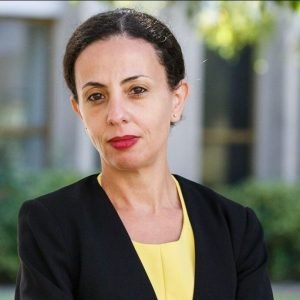
Sophia Labadi
Coordinator
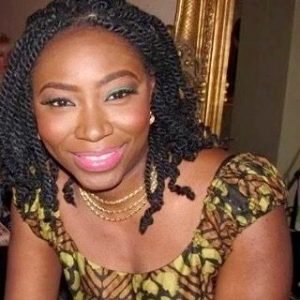
Tokie Laotan-Brown
Co-Convener
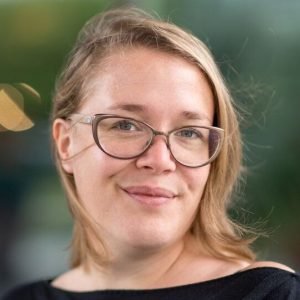
Loes Veldpaus
Co-Convener

Marco Acri
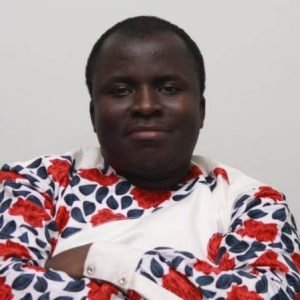
Olufemi Adetunji
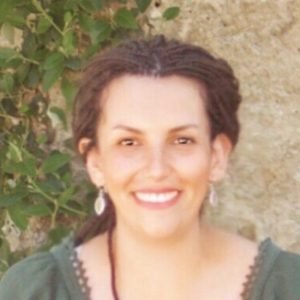
Paloma Berggren
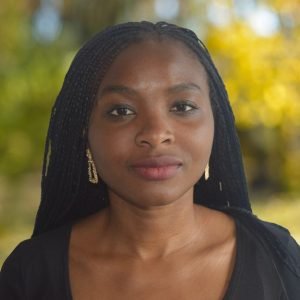
Emilienne Fernande Bodo
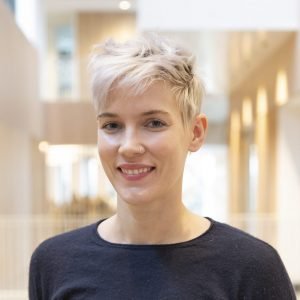
Annalisa Bolin
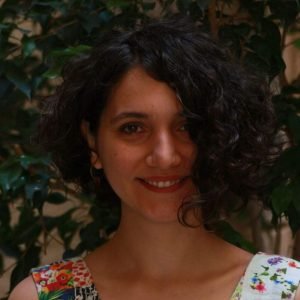
Merve Demiröz
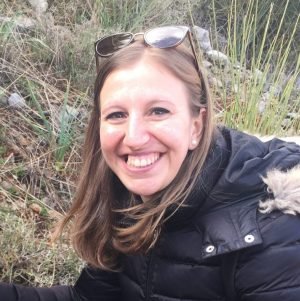
Francesca Giliberto
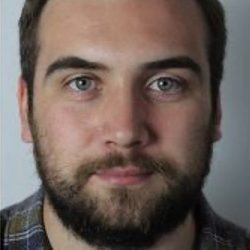
Karl Goodwin
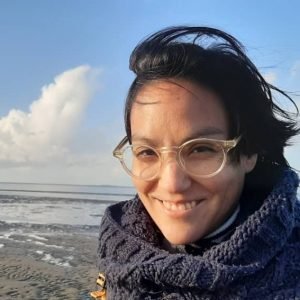
Maya Ishizawa
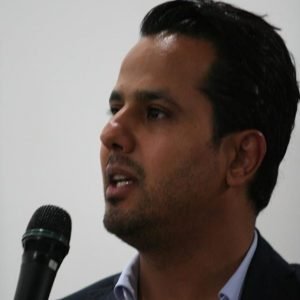
Ammar Kessab
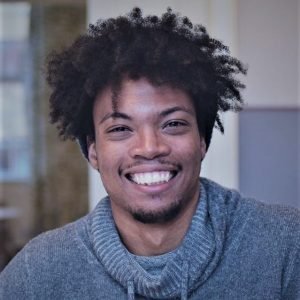
John Shorter
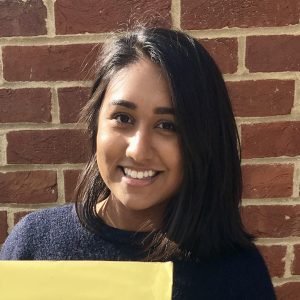
Keya Khandaker
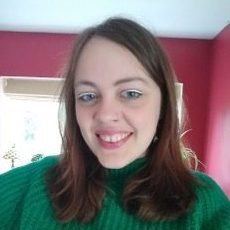
Toni Smith










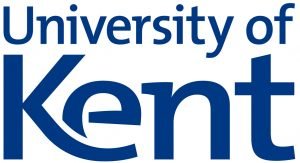
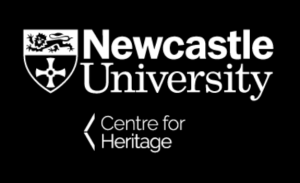

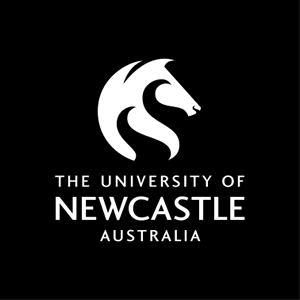
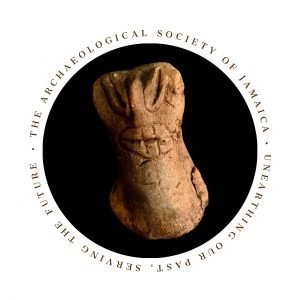
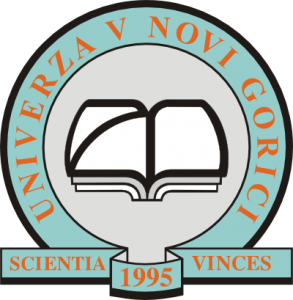
Heritage can be a manipulative tool to serve ad hoc social, economic and political goals which can undermine social inclusion and diversity. In this webinar, (held on March 03, 07:00-09:00 UTC) we will critically question how some policies and practices damage the connection between past and present for certain groups, societies or erase particular histories. To do this, specific cases will be discussed to demonstrate effects and alternative ways in which communities reclaim their heritage.
PROGRAMME
Heritage can be a manipulative tool to serve ad hoc social, economic and political goals which can undermine social inclusion and diversity. In this webinar, (held on March 03, 07:00-09:00 UTC) we will critically question how some policies and practices damage the connection between past and present for certain groups, societies or erase particular histories. To do this, specific cases will be discussed to demonstrate effects and alternative ways in which communities reclaim their heritage.
SPEAKERS
Dicle Beştaş, Program Coordinator from ‘Loading Art Space’ Diyarbakır Walled-City (Turkey). Loading is a non-profit art space that aims to enrich contemporary art dialogue in Diyarbakır from 2017. Their founding goal was not to bring together the artists living and working in Diyarbakır under one roof, but rather to resolve the issues they have been encountering in production and project-related issues, to archive the contemporary art practices from the first quarter of the 2000s, and to strengthen the international artistic awareness and interaction in Diyarbakır through various activities. Twitter: @llloadinggg, Instagram: @llloadinggg
Claudio Arestivo, co-founder of MoltiVolti Palermo Historic Centre (Italy). Moltivolti, is an innovative model of social enterprise based in Ballarò, a multiethnic district in the historical center of Palermo where 14 different immigrant communities live. A project intimately connected with the neighborhood, that grows in equilibrium with the colorfully populated market from old and new citizens. The project started in 2014 thanks to the idea of a multicultural team of 14 person coming from 8 different countries. Today, 28 person from 10 countries work here. Moltivolti is composed of a restaurant with a Sicilian-ethnic and popular cuisine and a free co-working space for twelve different non-profit organizations that everyday organize activities with migrants, minors, and disadvantaged categories.
Dr. Kellie Pollard, Charles Darwin University (Australia). Dr Kellie Pollard is a Wiradjuri (Indigenous) researcher and currently holds the position of Lecturer within the College of Indigenous Futures, Arts and Society (CIFAS) at Charles Darwin University in the Northern Territory of Australia. Dr Pollard completed a Bachelor of Arts at the Australian National University, a Bachelor of Arts with Honours at Charles Darwin University and a PhD at Flinders University majoring in contact archaeology. Dr Pollard’s additional specialisations are in Indigenous epistemologies, ontologies and axiologies (Indigenous ways of knowing, being and doing); Indigenous research methods and research ethics; Australian colonisation history and reconciliation, treaty and truth-telling Australian history. Dr Pollard currently retains an Australian Research Council prestigious research award to investigate the contact history between Tiwi Aboriginal people and Europeans in the Northern Territory of Australia. Dr Pollard pursues Indigenist social research practices in archaeology and broader social science research to empower Indigenous communities through an emancipation lens of social justice. www.researchers.cdu.edu.au
Tui Shortland (Māori), Aotearoa (New Zealand). Tui Shortland (Ngāti Hine, Ngāti Raukawa ki te tonga) hails from Aotearoa (New Zealand). Tui has worked with Indigenous authorities, leadership, and land trusts in environmental management for the past 16 years. She assists ecobusiness development and helping indigenous organisations to provide pioneering services in traditional livelihoods, cultural impact assessments and cultural environmental monitoring. Tui is the founder of Awatea Organics, specializing in cultivating Indigenous food sovereignty from her ancestral lands in Whangarei where she manages the family farm to reconnect people to land, providing healthy food to Maori families and promoting indigenous sustainable livelihoods around food. At Awatea they mentor new farmers, using the not only to produce nutritious heritage food and medicine but also as a training ground for workshops and community open days, and developing and promoting innovations in indigenous organic food, medicine and plant production to improve biodiversity, build climate resilience and community health. Tui has been involved extensively in indigenous diplomacy, with the United Nations in regards to Indigenous biological diversity and climate change, serving as a Pacific regional representative. Since 2012, Tui has worked with the International Indigenous Forum on Biodiversity, a collective of representatives from Indigenous governments, Indigenous NGOs, and Indigenous scholars and activists that organize around the Convention on Biological Diversity to help coordinate Indigenous strategies and participation at these meetings to recognize and respect Indigenous rights. As the director of Te Kopu Pacific Indigenous and Local Knowledge Centre of Distinction, Tui focuses on traditional knowledge and customary use of biodiversity, cultural health indicators, Rongoā (traditional Māori medicine), and Māori cultural values of the environment and traditional ecological knowledge. Some of her career highlights include turning an iwi Resource Management Unit around to be self-sustaining; working with the Karen people of Thailand to develop a monitoring framework and map their territories based on their medicines and hunting practices; and most recently, developing a successful process to assist scientists and Indigenous Peoples to work together in benefit sharing of biological resources.
www.culturalsurvival.org I www.awateaorganics.nz I www.facebook.com